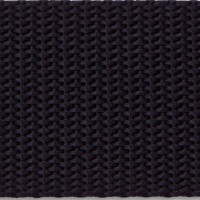- Local: (516) 346-4636
- Toll-Free: (800) 886-6060
- Fax: (516) 346-4366
- Email: kflynn@nationalwebbing.com
When it comes to cargo webbing, the most popular materials to choose are polyester or nylon webbing. Many applications utilize cargo webbing, including but not limited to, seat belts, tie-downs, and cargo nets. Both materials are similar but do have their differences. How do you decide which one will work best for your needs?
This type of webbing is a strong and durable option, just like nylon webbing. However, it’s not as flexible as its counterpart and does not stretch as much. Poly webbing is not designed for extreme weather. It will not stand up to temperatures that are too hot or too cold. Polyester webbing is unable to sustain temperatures above 194 degrees Fahrenheit or below -40 degrees Fahrenheit. This includes coming into contact with objects at these temperatures, such as vehicles, secured cargo, and anchor points.
Poly webbing is popular in a multitude of applications, such as:
Motorcycle tie-downs
Cargo nets
Ratchet straps
Just like polyester webbing, nylon is incredibly durable. It also stretches at five to seven percent at rated capacity and about thirty percent at break strength. This feature makes it a better option for applications looking for flexibility. Just like poly, nylon is unable to come in contact with extreme temperatures. The breaking point is also above 194 degrees and below -40 degrees. One popular application for nylon webbing use is recovery straps.
We want to help with all your cargo webbing needs. We can help with a multitude of applications and work with you to fit your needs.
Related Reading: